:max_bytes(150000):strip_icc()/what-is-logical-fallacy-1691259-v5-5b75893bc9e77c005024c1ee.png)
What is a Logical Fallacy?
If it rains, the ground is wet. The ground is wet. Therefore, it rained. In this example, it is possible that the ground is wet for a reason other than rain, so the conclusion does not follow logically from the premises. Some common types of formal fallacies include: Affirming the Consequent. Denying the Antecedent.

10 Common Logical Fallacies Everyone Should Know (With Examples
The semi-logical fallacies mostly trade on ambiguous middle terms and are therefore also logical fallacies, but their detection requires extra-logical knowledge including that of the senses of terms and knowledge of the subject matter (Bk. III, §2); they include, among others, the fallacies of ambiguity, and division and composition.

FALLACIES A complete list of logical fallacies in 20 minutes master
The term logical fallacy is in a sense self-contradictory because logic refers to valid reasoning, whereas a fallacy is the use of poor reasoning. Therefore, the term formal fallacy is preferred. In informal discourse, however, logical fallacy is used to mean an argument that is problematic for any reason.
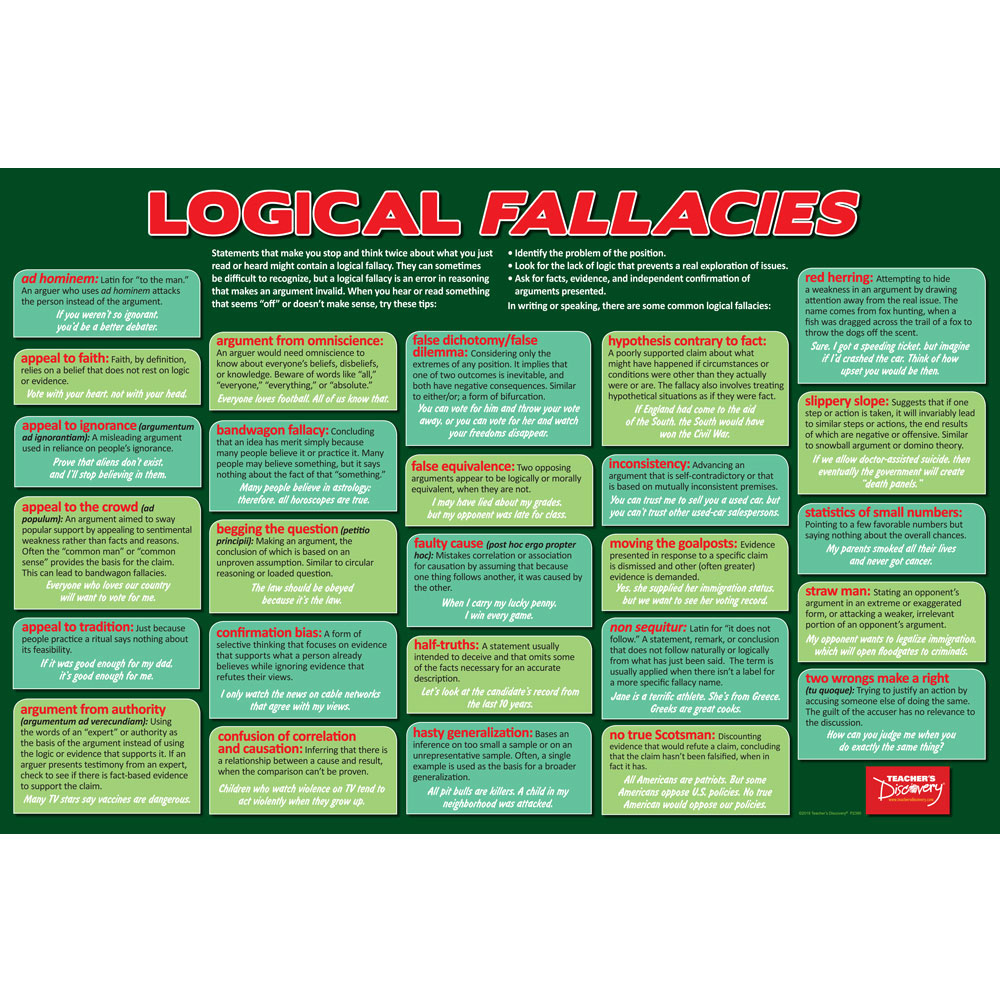
It's Only Logical Logical Fallacies Poster, English Teacher's Discovery
Logical fallacies, in simple terms, are errors or mistakes in our reasoning. You might come across them when you're chatting with a friend, watching the news, or even reading a book. Some of these mistakes happen because we don't know better, while others might be used intentionally to mislead or persuade.

Beginner's Guide to Logical Fallacies (With Examples) Fallacy In Logic
When someone says something like "This tee-shirt is wet because it's covered in water," they're making a fallacious argument. In fact, the tee-shirt is wet because you fell in a lake, for example. In this case, someone saying something's wet because it's covered in water is just stating the obvious.
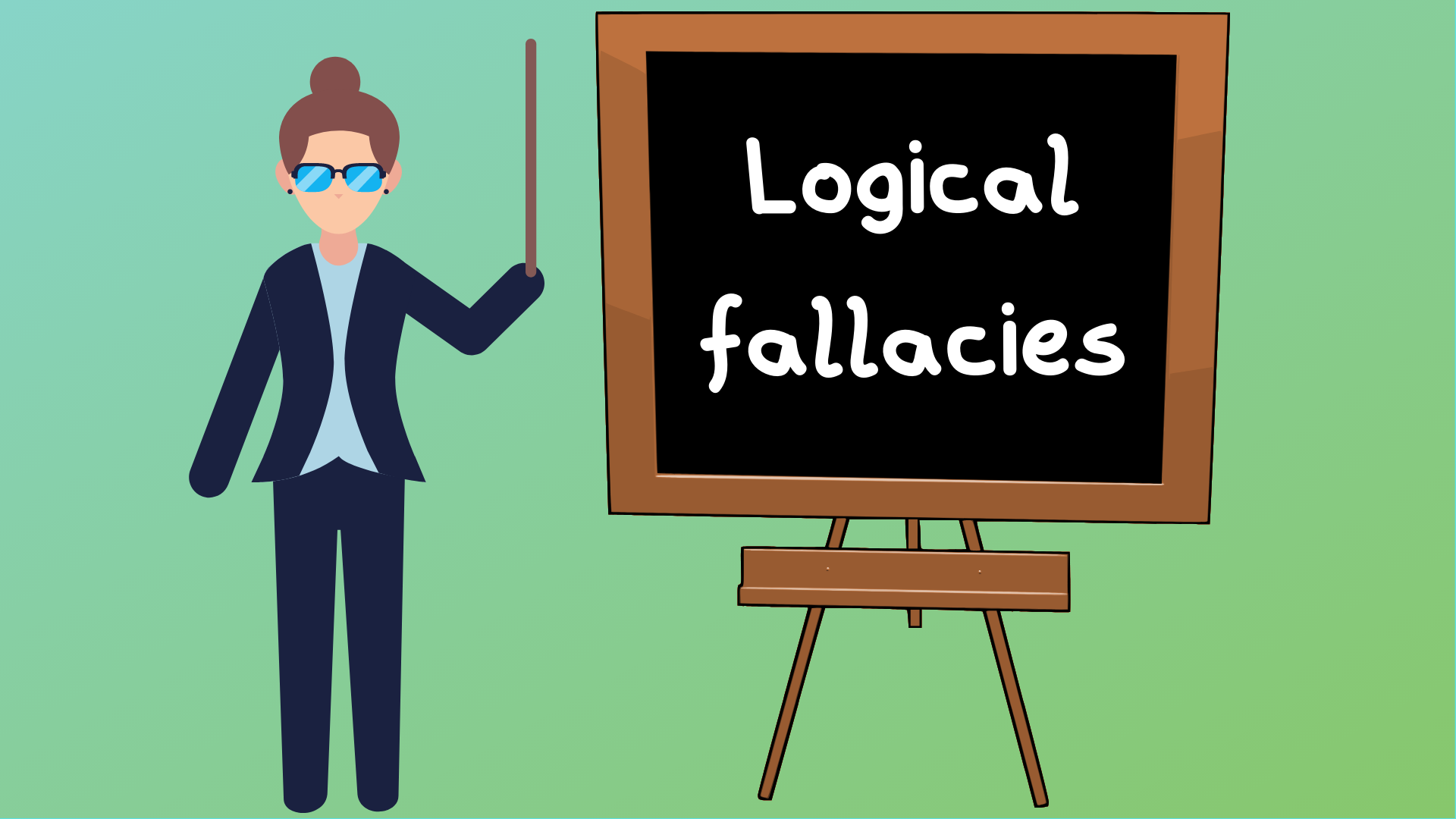
Guide to the Most Common Logical Fallacies
Informal fallacies - arguments that are logically unsound for lack of well-grounded premises. Argument to moderation (false compromise, middle ground, fallacy of the mean, argumentum ad temperantiam) - assuming that a compromise between two positions is always correct.; Continuum fallacy (fallacy of the beard, line-drawing fallacy, sorites fallacy, fallacy of the heap, bald man fallacy.
/10-Common-Logical-Fallacies.png)
Logical Fallacies Infographic
fallacy, in logic, erroneous reasoning that has the appearance of soundness.. Correct and defective argument forms. In logic an argument consists of a set of statements, the premises, whose truth supposedly supports the truth of a single statement called the conclusion of the argument. An argument is deductively valid when the truth of the premises guarantees the truth of the conclusion; i.e.
Logical fallacies 35 ways to lose an argument [OC] r/Infographics
This logical fallacy is often at play among conspiracy theorists, but it's just another easy way to avoid the hard work of understanding and responding to logically sound arguments. Argumentum ad Populum Logical Fallacy. The Argumentum ad Populum (Argument to the People, or "to Popularity") is based on the premise that, if a certain.
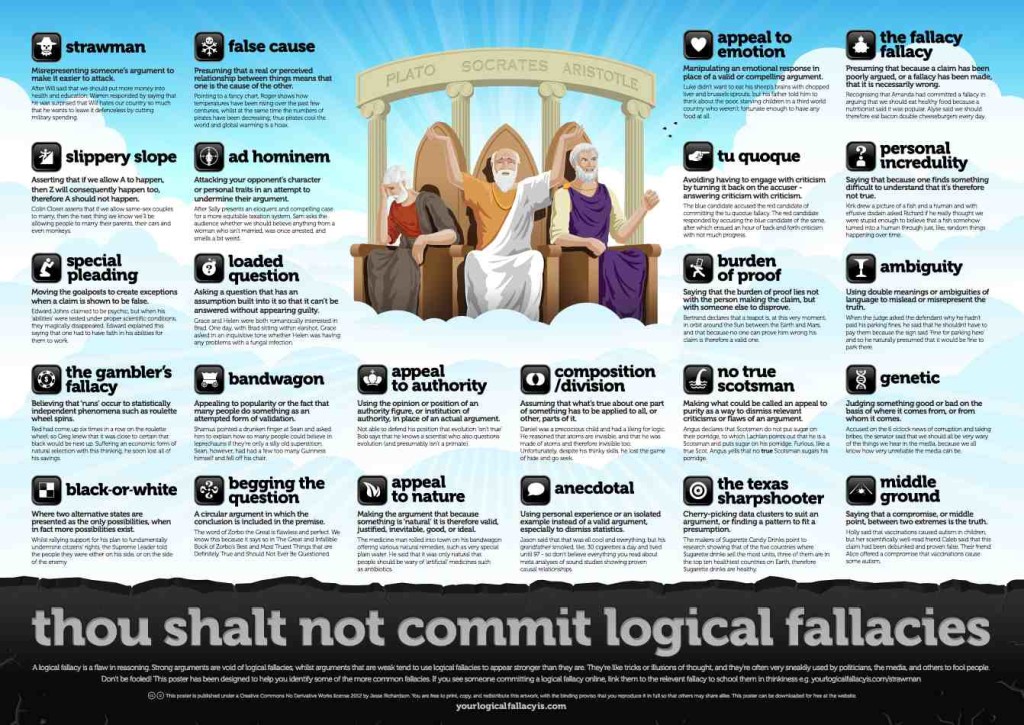
10 Ultimate Tips How to Find a Fallacy in an Article 2023 Guide
Logical fallacies can be difficult to identify, as they often involve seemingly reasonable arguments that, upon closer examination, reveal underlying flaws. To avoid falling prey to logical fallacies, it is essential to develop critical thinking skills and a solid understanding of the principles of logic and argumentation. By doing so, one can.
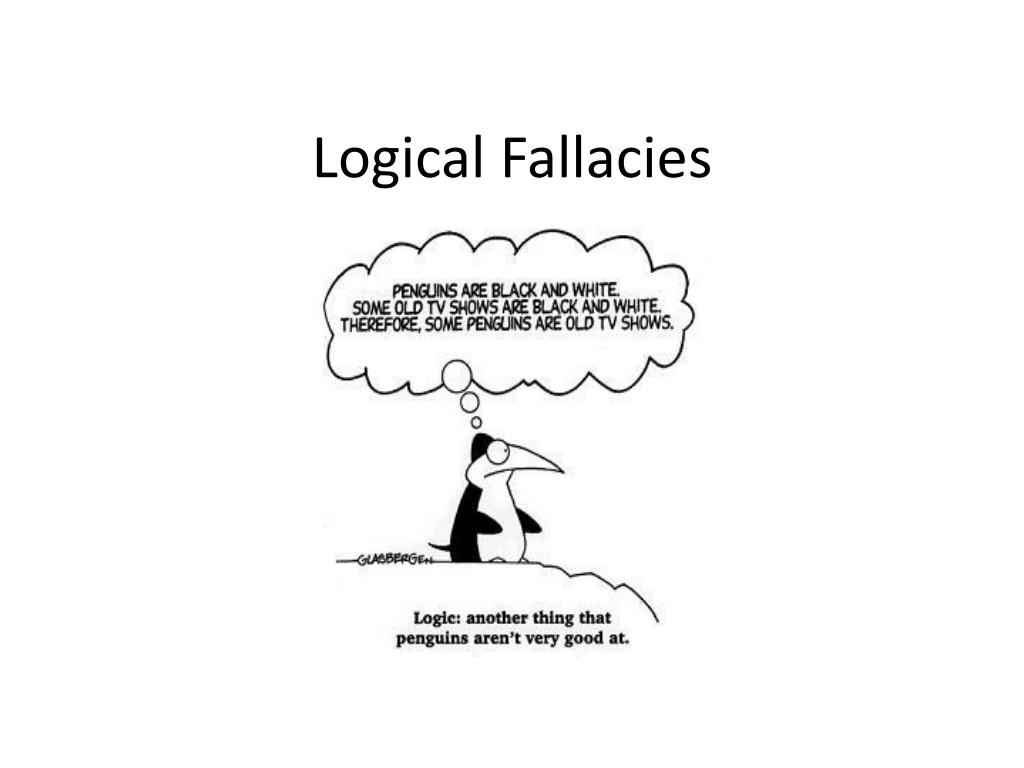
PPT Logical Fallacies PowerPoint Presentation, free download ID2669309
However, this argument is making a lot of assumptions and taking them to an extreme measure. It is leaving out all other factors that would have to occur to result in a person becoming homeless. 4. Straw Man. This logical fallacy uses the technique of twisting someone else's case to make it easier to disprove.

Types of logical fallacies
A logical fallacy is an argument that can be disproven through reasoning. This is different from a subjective argument or one that can be disproven with facts; for a position to be a logical fallacy, it must be logically flawed or deceptive in some way. Compare the following two disprovable arguments.

Logical Fallacy. A logical fallacy is a false statement… by Mudit
These kinds of statements are often referred to as Logical Fallacies. Essentially, an argument that is built on flawed reasoning, and that - when you apply logic - is discovered to be false. Logical fallacies can be persuasive, and are often used in rhetoric to encourage people to think a certain way or believe certain things.

Red herring logical fallacy examples rytepaper
Logical Fallacies. Fallacies are common errors in reasoning that will undermine the logic of your argument. Fallacies can be either illegitimate arguments or irrelevant points, and are often identified because they lack evidence that supports their claim. Avoid these common fallacies in your own arguments and watch for them in the arguments of.
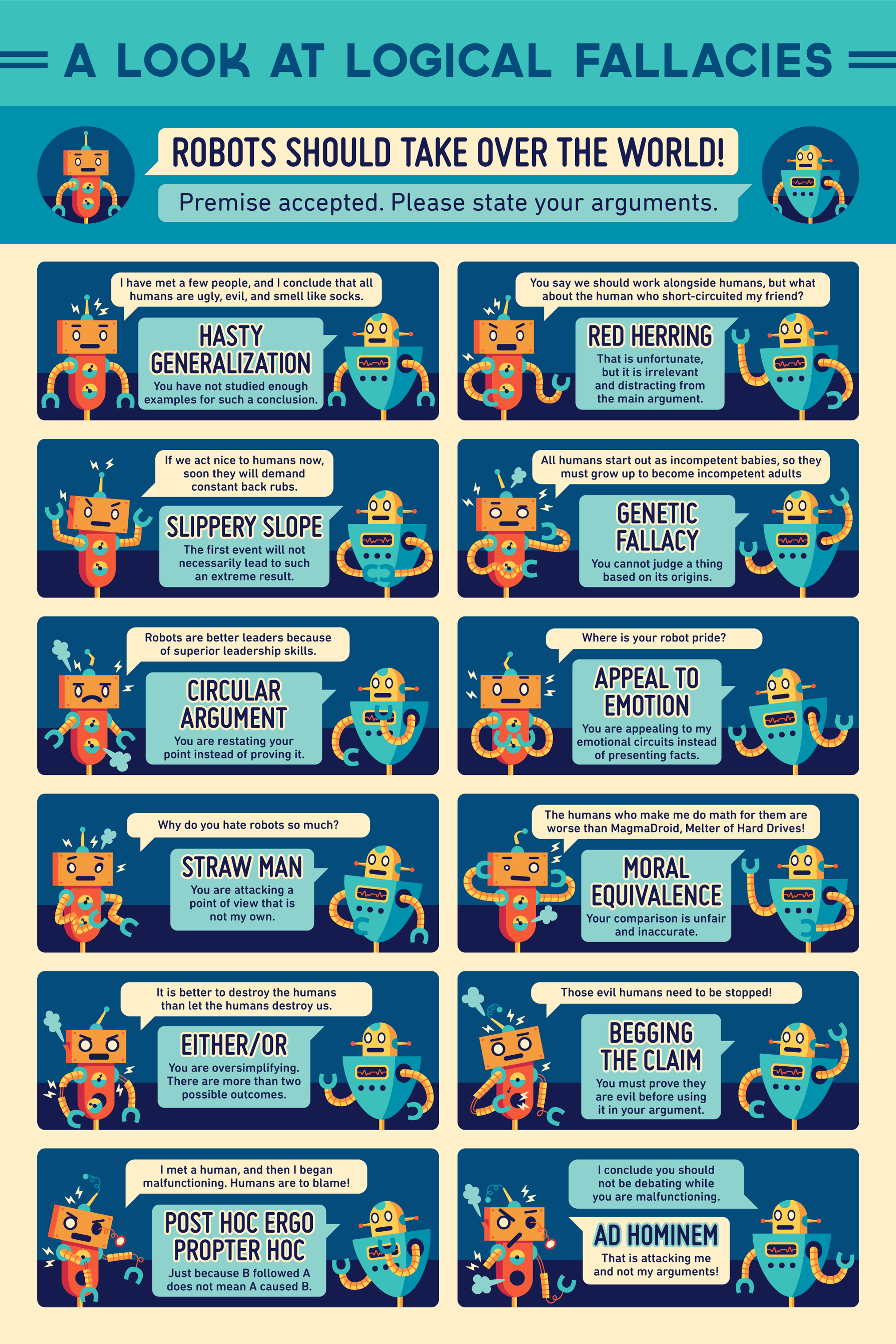
Logical Fallacies Poster Charts & Posters thekingsarmswing.co.uk
Other names: Personal attack, name-calling. Definition and explanation: Latin for "to the person," the ad hominem fallacy is a personal attack. Essentially, instead of addressing the substance of an argument, someone is attempting to discredit the argument by attacking the source. The ad hominem is one of the most common logical fallacies.
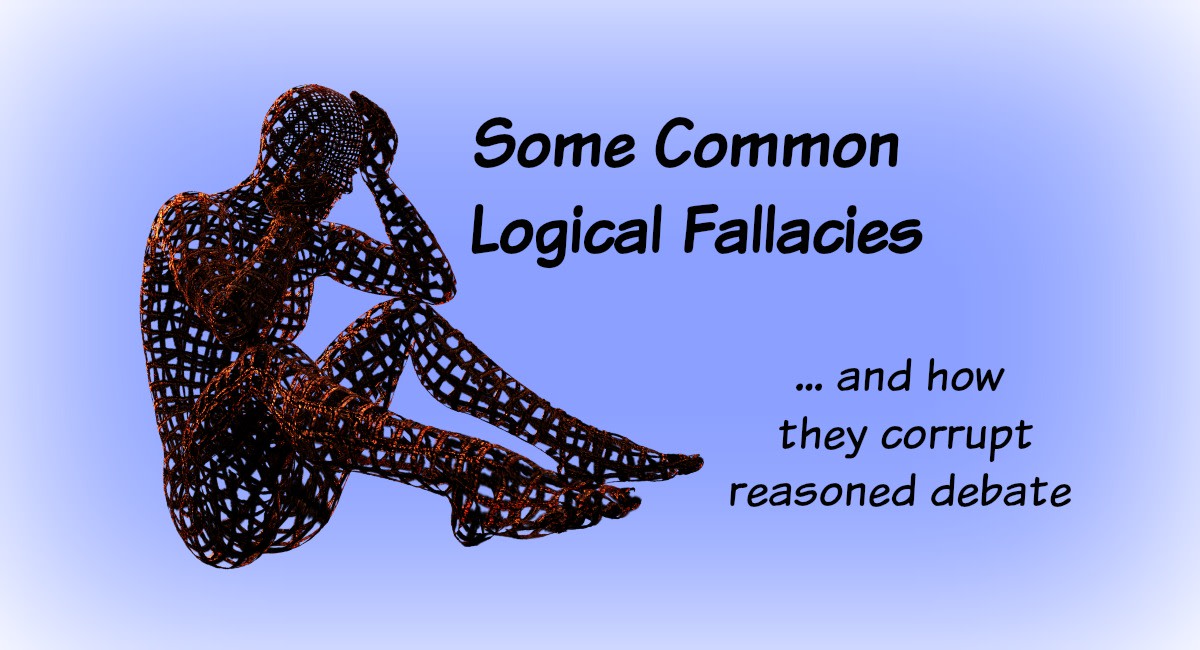
Some Common Logical Fallacies (and How They Corrupt Reasoned Debate
Logical Fallacies. Logical fallacies are errors in reasoning that are based on poor or faulty logic. When presented in a formal argument, they can cause you to lose your credibility as a writer, so you have to be careful of them. Sometimes, writers will purposefully use logical fallacies to make an argument seem more persuasive or valid than it.
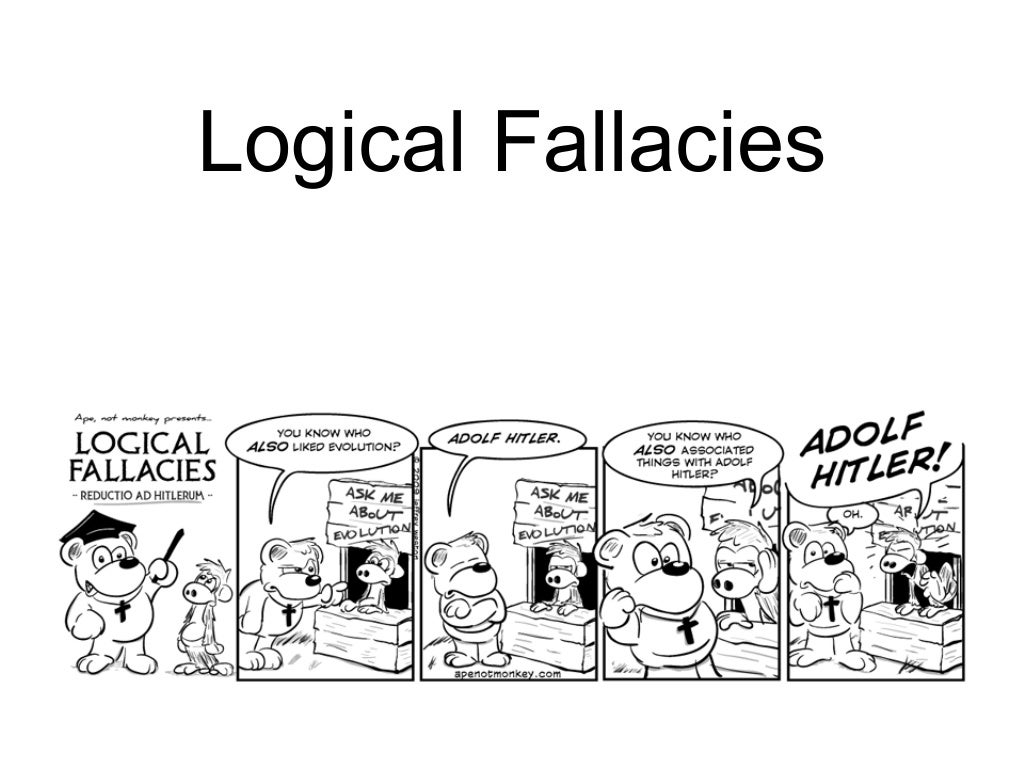
Logical fallacies
A fallacy relying on inductive reasoning, appeal to the stone is a particularly vulnerable fallacy in contexts where new evidence may eventually reveal itself. Example 1: Speaker 1: Humans share a common ancestor with the chimpanzee. Speaker 2: No they don't.